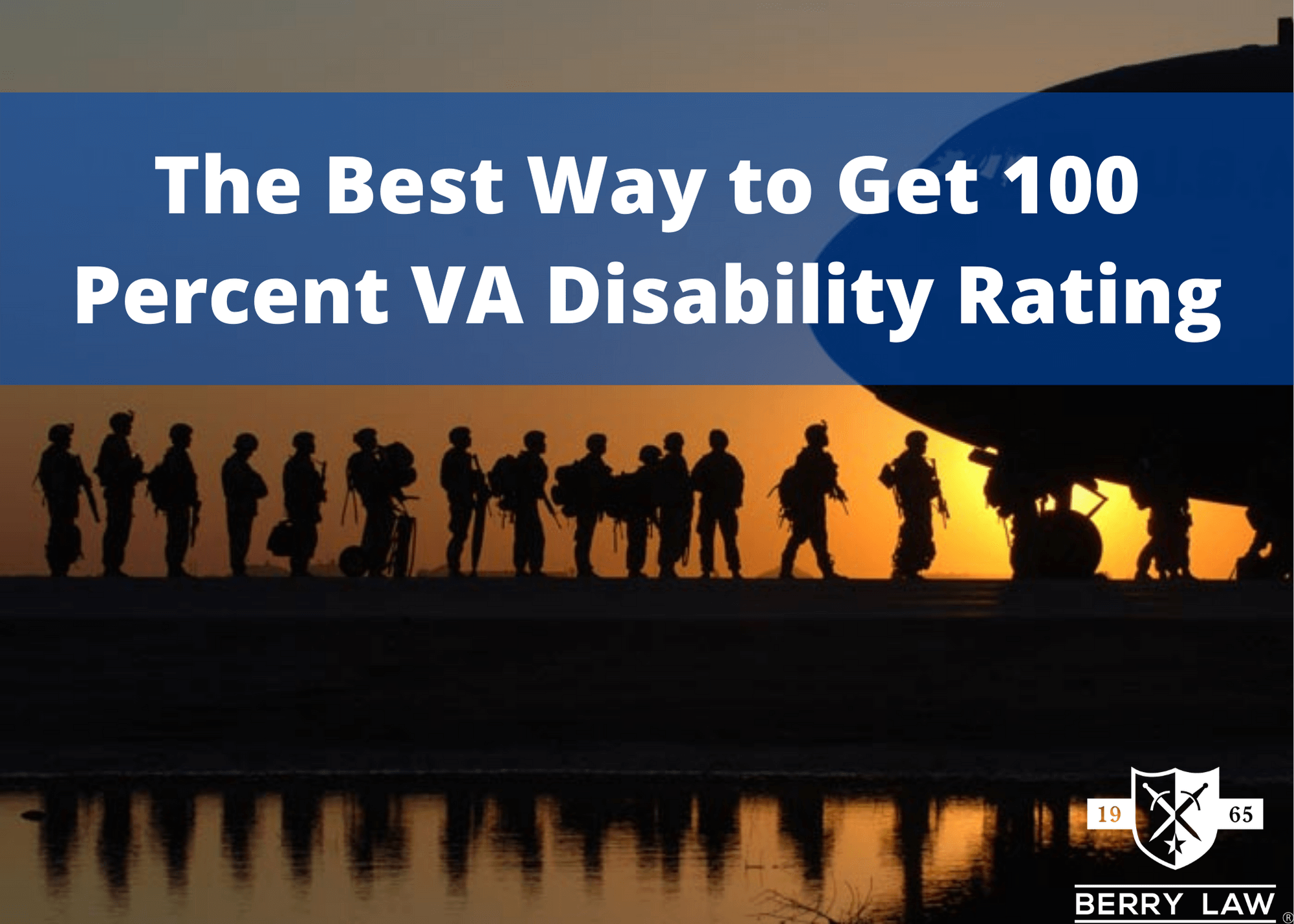
There are two different ways to get VA disability benefits for a 100 percent VA rating. The first is by having one or multiple service-connected conditions that add up to a 100% disability rating. The other is to get a 100% rating through TDIU.
TDIU stands for “Total Disability based on Individual Unemployability.” Because the VA rating schedule is based on impairment of earning capacity, a Veteran who cannot work should be entitled to 100% VA disability. These tax-free monthly payments are meant to compensate Veterans for their inability to work and earn income based on their service-connected disability or disabilities.
To qualify for TDIU on a schedular basis, you must meet the following criteria:
it is important to note that the VA disability rating system is not additive, which means if a Veteran has two disability ratings, one at the 60% level and one at the 10% level, their combined rating is not 70%. According to the VA’s Combined Ratings Table, the combined rating would actually be 64%.
The VA website on TDIU gives two examples of situations where TDIU is appropriate.
A Veteran has a service-connected heart condition evaluated as 60% disabling. She has been able to work without difficulty until last year when she began to experience chest pain with any exertion. Her physician recommended that she retire as soon as possible. She subsequently filed a VA disability claim for increased disability compensation. Evidence regarding the Veteran’s work history and education was reviewed by the Rating Team. As it confirmed the Veteran was “individually unemployable” due to her service-connected condition, entitlement to compensation at a total disability rating of 100% was granted.
– OR –
A Veteran served as a medic in Vietnam and stepped on a landmine severing his right leg below the knee. He wears a prosthesis that allows him good mobility. He had a great deal of difficulty readjusting to civilian life after military service and was recently diagnosed with post-traumatic stress disorder. Service connection was established for both disabilities. The ratings for these disabilities are 40% and 50%, respectively. The combined disability rating is 70%. He applied for individual unemployability because he has not been able to maintain gainful employment for many years. His only income during the last two years has come from a neighbor who pays the Veteran to watch his dogs while he’s out of town. The evidence established that his service-connected conditions render him unemployable. Based on this finding, the Rating Team rendered him totally disabled and granted entitlement to compensation at the rate payable to a Veteran rated 100% disabled.
When a Veteran has one or more service-connected conditions but is not able to secure substantially gainful employment, they can seek an extraschedular TDIU rating of 100% even if their VA disability ratings don’t reach the VA schedular TDIU requirements. Generally, the VA will look for a unique set of circumstances that demonstrates that you are “unemployable” due to your service-connected injuries, even though you aren’t rated at high enough levels of disability for those conditions. This is a challenging claim to provide evidence for, and will often require expert opinions in most cases.
Are you receiving the Veterans’ disability benefits you are entitled to receive by law? If you need assistance appealing VA Rating Decisions for mental health conditions or physical disabilities that occurred in service, please contact the Berry Law. Click here to schedule a time to talk to a member of our team to determine if we can help you with your VA appeal.
Our monthly newsletter features about important and up-to-date veterans' law news, keeping you informed about the changes that matter.